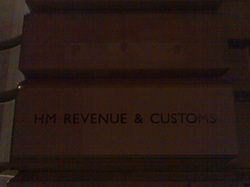|
With the recent government announcements regarding COVID-19, we understand that you require the latest information in order to see what help you may be entitled to. The government pages are being updated regularly as such we recommend keeping up to date with the news.
· Under the new Coronavirus Job Retention scheme, government grants will cover 80% of the salary of PAYE employees who would otherwise have been laid off during this crisis. The scheme, open to any employer in the country, will cover the cost of wages backdated to 1 March 2020 and will be open before the end of April. It will continue for at least three months, and can include workers who were in employment on 28 February. · Businesses are able to apply for a Coronavirus business interruption loan. · The next quarter of VAT payments will be deferred, meaning businesses will not need to make VAT payments until the end of June 2020. Businesses will then have until the end of the 2020-21 tax year to settle any liabilities that have accumulated during the deferral period. · Income Tax payments due 31 July 2020 under the Self-Assessment system will be deferred to 31 January 2021, automatically without any applications needed. There will be no penalties or interest for late payment in this period. · For those in financial difficulty due to the virus, mortgage lenders will offer a three-month mortgage holiday · Cash grants of up to £10,000 have been allowed for small businesses depending on rateable values (The grant for companies with a rateable value of less than £15,000 has been increased to £10k). You will need to claim this through the local authority. · HMRC’s Time to Pay service has been expanded. This includes a new helpline 0800 0159 559 so that businesses and those who are self-employed can arrange to defer tax payments. · IR35 tax changes delayed by one year due to coronavirus We understand that this is an ever-changing situation, and we will endeavour to keep you up to date on the latest announcements. The latest government guidance can be found by accessing the GOV.UK https://www.gov.uk/government/publications/guidance-to-employers-and-businesses-about-covid-19/covid-19-support-for-businesses
16 Comments
 This is a new HMRC Online system that will be introduced from April 2013. It will require employers to file their payroll details with HMRC every month/week before they are able to pay their staff. This means employers will no longer be able to give cash advances to staff which then later deduct from their wages. Currently employers only file a summary of this information once a year which has led to issues in recent years with individuals under or overpaying taxes due to incorrect tax codes. This new system will mean that the information held by HMRC should be up to date and hold accurate details of an individual’s earnings at any point during the year. HMRC claims that RTI will:
Payments and penalties Under the current system of annual filing HMRC are unable to tell if employers are paying the correct amounts of PAYE & National Insurance contributions throughout the year however the new monthly reporting system will enable them to check this. The penalty system was updated in 2010 in anticipation of the new RTI service and penalties will be imposed based on the number payment defaults on a percentage basis. The percentage penalties range from 1% for 2 to 4 defaults in the year to 4% for 10 or more. Employers paying 6 months late will incur a penalty of 5% with a further 5% charged if the payment is 12 months late. HMRC have said that they will issue warning letters for first and second defaults before penalties are issued so that employers are aware of the risk of incurring penalties. Payroll software Payroll software will need to be updated so that it can pass the information to HMRC. All payroll software developers will have accounted for this but you need to make sure you have got the necessary update. If you are not using payroll software you will need to use this going forward, however there is some free software provided by HMRC called Basic PAYE tools that is available for small employers. Alignment process There will be a payroll alignment process before each employer goes onto the RTI system so it is important to make sure you hold all the necessary employees details beforehand (name, address, National Insurance number and date of birth). Owner managed businesses We had been hoping there would be an exemption for owner manage businesses who currently only file an annual payroll return as they are paid below the limits for Income tax and National Insurance. As the deadline is fast approaching and nothing has been announced we have to assume that these businesses will now have to file a monthly payroll return under the new system. This is a big increase in form filling for small businesses when the government had pledged to reduce red tape for businesses. You may find this HMRC checklist useful http://www.hmrc.gov.uk/payerti/getting-started/business-readiness-checklist.pdf  Pensions At first sight the Chancellor’s Autumn Statement did not contain much cheer, but things are not as bad as you might think. The restriction in pension tax relief caught the headlines, but has not yet been implemented. Although the pension annual allowance will fall to £40,000 as of 6th April 2014, there is still scope to use unused relief from previous years. Other non-contentious tax breaks are also still available for those who want to look for them. With just over three months to go to the end of the tax year, it’s time for people with income of more than £100,000, especially those paying the top tax rate of 50%, to consider how to reduce their tax liabilities. Accountants, Brighton, Hove, accountant According to the government the Universal Credit will simplify the current system of Department for Work and Pensions payments to unemployed people and low-income earners. It consists of a standard allowance and five other potential elements, which are:
businesses. As it stands, if you are in business for yourself, you will need to submit an additional online report on a monthly basis. Your benefit payments will be suspended if you don’t claim your Universal Credit within seven days of filing this. The concern is that this timeframe is too tight given the inherent pressures many self-employed people are under. Please call us for further information  Taxpayers who have yet to file tax returns for 2009/10 have less than a week left to take advantage of reduced penalties for late returns. Under HMRC's tax return initiative, outstanding tax returns up to and including 2009/10, if submitted before 2 October 2012, will be subject to reduced penalties, even though new penalties for late tax returns have already come into effect. “Time is running out, so taxpayers with tax returns outstanding should act immediately if they wish to keep the weight in their wallet and off of their shoulders,” Baker Tilly said. Under the new rules a penalty of £100 is charged when a return is just a day late. When the return remains outstanding after 3 months, a daily penalty of £10 is levied for up to 90 days. When the return is 6 months late, the higher of £300 or 5% of the tax due is imposed and this penalty is then repeated if the return remains outstanding 12 months after the deadline. In serious cases, HMRC can charge penalties of up to 100% of the tax due for a return that is over a year late. These staggered penalties are automatic and cannot be mitigated without a “reasonable excuse”, such as a serious illness or a breakdown in HMRC’s computer system. Where late payment applies, further penalties equal to 5% of the tax due are levied 30 days and 6 months after the 31 January and 31 July payment deadlines. There is also interest to pay.  The taxman has been looking into allegations the company wrongly charged VAT on children's clothing which is usually exempt, dating back as far as 2006 Read more: |
AuthorLicenced Accountant in Brighton Archives
May 2020
Categories
All
|

 RSS Feed
RSS Feed
